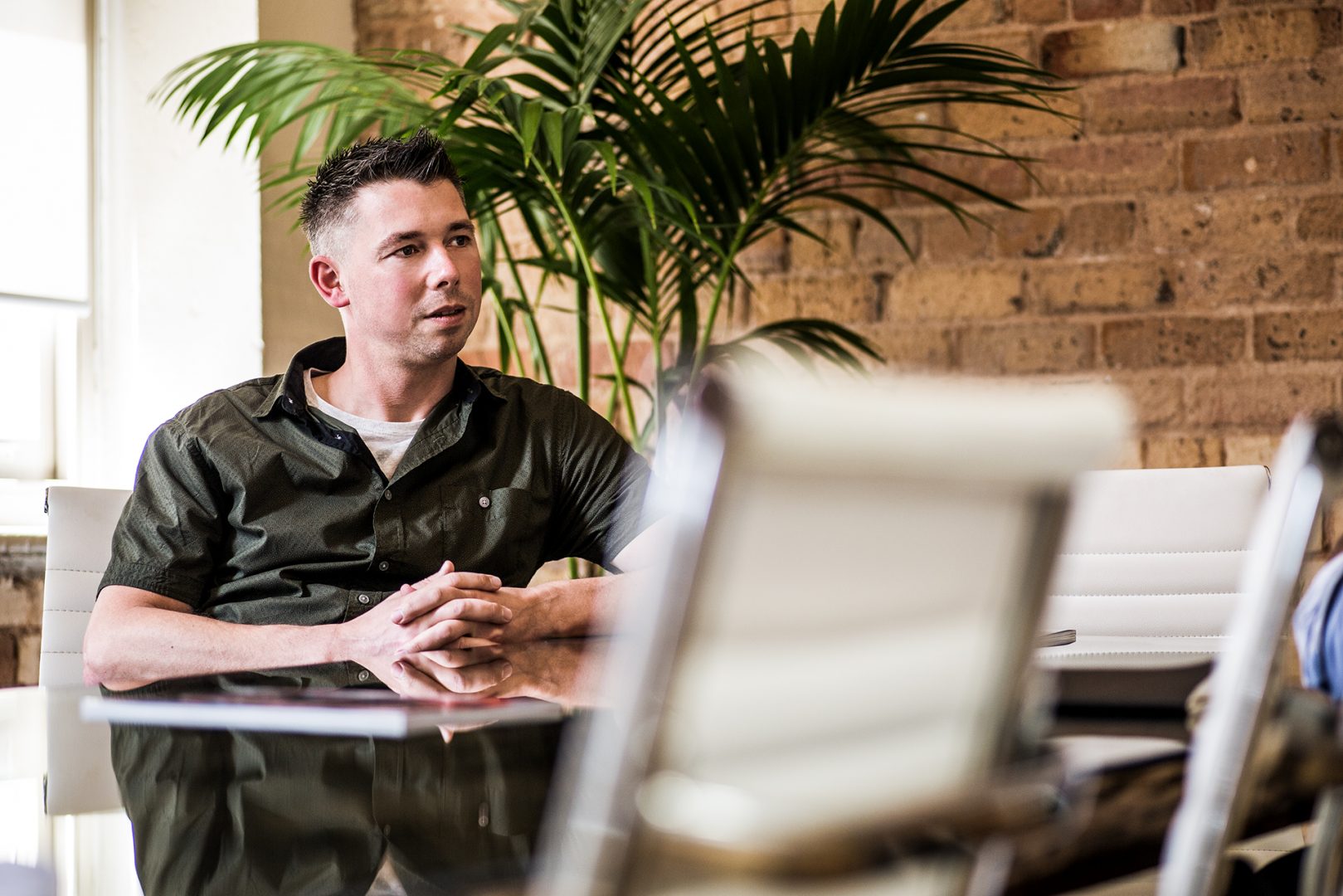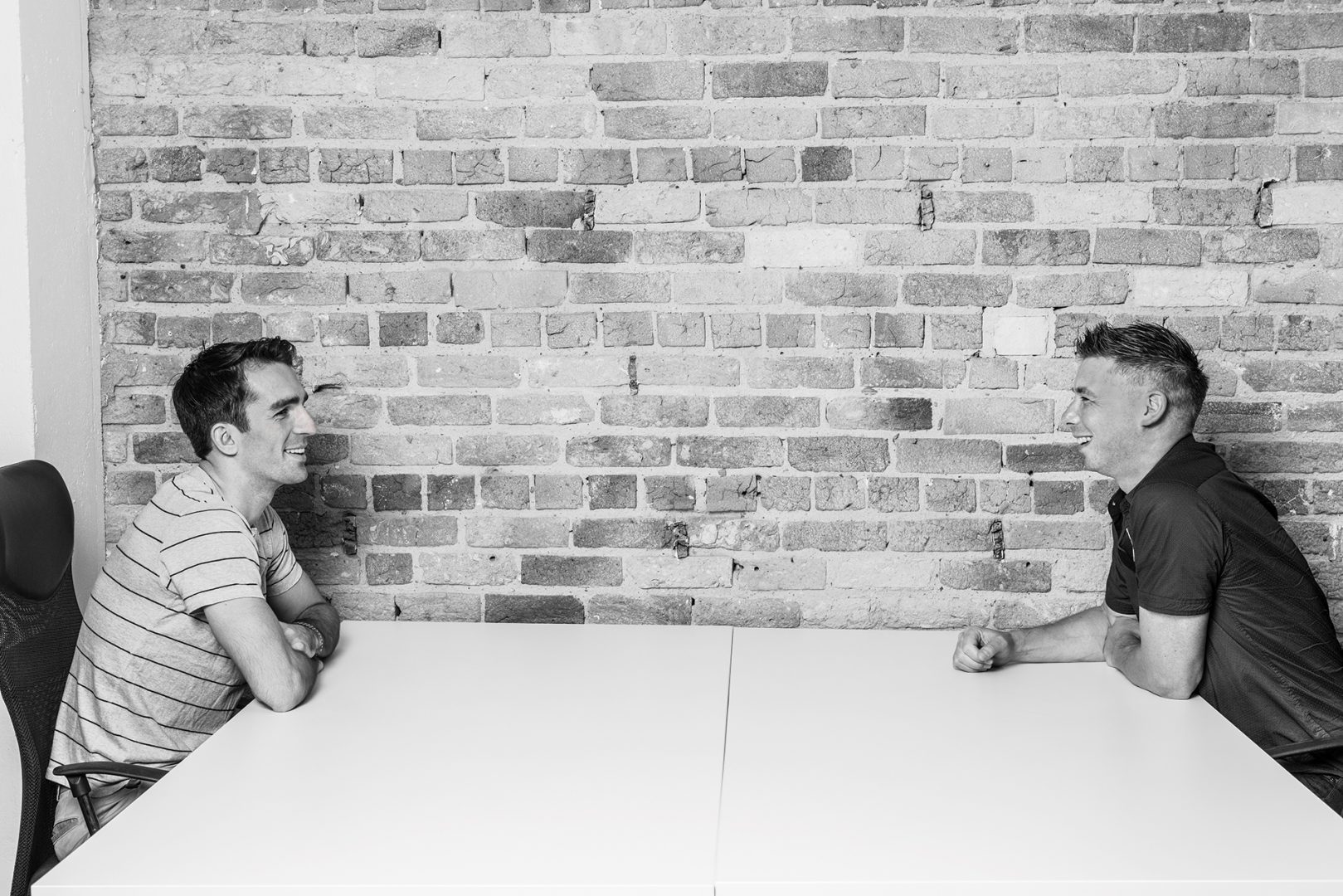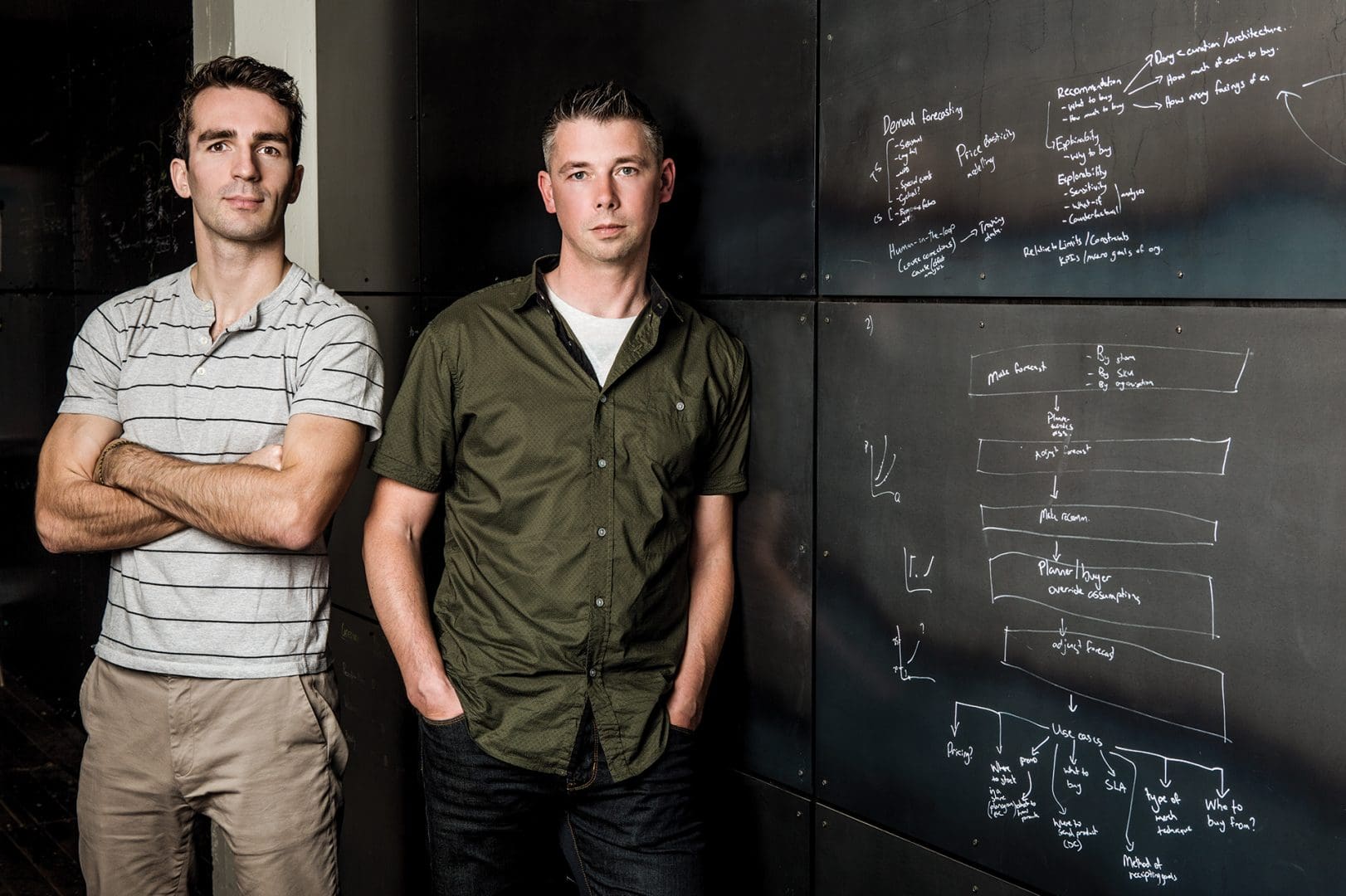The Future Of Retail
Insite AI is one of the latest of a new breed of AI-based startups coming out of New Zealand that looks set to change the world. In this case, the world of retail.
While demand forecasting based on historical data is commonly used in the world of retail to make merchandising decisions moving forward, there is now the technology to move out of the past. Instead of trying to work in retrospect, Insite AI uses cutting edge AI technology to allow retailers to make the best decisions on the fly in order to achieve targets around gross profit, margin, stock turn, inventory holding, value cash on hand and supply chain efficiencies. Their cloud-based system quickly produces predictions on 100s of thousands of SKUs, for thousands of stores, every day.
Two of the people helping build the future of retail are Nicolas Fourrier and Gary Poore.
With a PhD in AI and previous experience at Soul Machines, Nicolas is Insite AI’s AI lead and works on the company’s overall AI strategy, while also working on the bleeding edge of AI research.
Gary Poore is one of New Zealand’s leading software engineers. He previously helped create core infrastructure for Barclays and JP Morgan in the UK. In 2016, he moved to NZ and became one of the lead engineers at Xero, where he created some of their core systems before moving onto become Insite AI’s engineering lead.
We talk to Gary and Nicolas about the work-life balance, where great ideas come from, and the technology that is going to define the future of retail.
You’re both leaders in your fields. How does a start-up attract you guys to come along and be a part of it?
Gary: I like to feel I’m making a difference. Plus, there’s always lots of ideas you want to try out. You want to grow into those ideas, but sometimes there’s not much opportunity to do that.
What really drew me to this was that it was fresh. It was an opportunity to get in on the ground floor, as well as actually grow my own ideas and grow a team along those lines and make something that I feel real ownership for. I’ve always sort of been looking for that.
Nicolas: I’ve always tried to not step too far from academia and so it’s natural for me to want to have more ownership on the research. But that being said, we will also try to bring everyone’s ideas into the research, so that everyone can contribute as much as they can according to their interest.
I think having a sense of ownership over the research and the work that you are building is a really important piece. Also being able to know how your research can really go further and be a part of something bigger.

Is there a bit of tension for you between the academic world and the commercial work?
Nicolas: I think part of the success of a this company is going to be in making this interaction as strong as possible, because this world of forecasting, trying to predict something in the future, is somehow never going to be solved. We are not going to be 100% sure of what is going to happen in one month or in three months.
It’s not just about retail, it’s about forecasting anything. Having people in academia that can spend more time, going deeper in this area is going to benefit the work that we do at a commercial level.
When you were doing your PhD, was this the sort of thing that you imagined being a part of?
Nicolas: I did a PhD in a really abstract topics where it was more around understanding how the system behaves, so that the industry can also predict how it’s going to to behave in the future.
But it somehow made sense from this background to have developed some more application of understanding how all complex interactions can merge together to produce certain results. This was floating around me at the time I was doing the PhD work.
Has this work changed the way that you shop?
Nicolas: I’m not sure that Gary and I are the world’s biggest shoppers but maybe we’d be more conscious with the cycles of promotions or understand that if you wait a week, you would get discounts, but I don’t think it has had a huge impact on our life.

It’s more seeing the process rather than changing our buying habits. We see what the intent was behind an event in a store.
What is it that motivates you guys?
Gary: I can probably honestly say that I do actually want to come to work in the morning. I’m excited to come to work because even now, right in those early stages, we can visibly see the difference we’re making.
It may not be fully realised yet, because a client may not be utilising what we’ve done yet, but we’ve proven we can do it, we’ve proven we can make a difference when our clients start implementing those changes. That’s what what I wanted to do. There’s so much more we can do.
For me as well, it’s this opportunity to realise the engineering-based things I’ve been wanting to really, really push and have the scope to do it from the ground up, rather than having to essentially retrofit on the side of something else, which is normally what you do end up doing.
It’s exciting, there’s lots of scope for change and iteration and failure maybe, then you rework it and make it work.
Nicolas: Yeah, I agree with that. Each contribution is really important and these iterations are retracing from a more research perspective. The limit of the application is almost secondary.
What is really interesting for me as a researcher is that you are trying to tackle a problem. You think you’ve solved it, but once you solve it, you realise that it’s not solved completely or you have 10 more problems and now you have to decide, prioritise what the problems that need to be solved to keep going, to keep it working and get better results.
Because we have some liberty in the iterations we are having, then it’s very interesting to progress in the research.

Is there an average day? Is it like the typical startup you think of with people working all hours.
Gary: We’re probably typical of the start up thinking in that sense. I’m the one that opens up because I’m always in early. I’m wanting to get in and I’m wanting to get going. So for me, that period between 7am and 9am is where I can just get in.
I’m usually thinking about it at night before anyway or on the way in and I want to get it out of my head and into something tangible. At various points, the team comes in and then it gets a bit more interactive.
You’re spending time with people and helping the team out. We’ll split off to spend a good hour just working things through.
Nicolas: I like to arrive early as it’s the best time for my brain to work and to not be disturbed by external things. And then during the day, I try to find a balance between helping each other and then spending time without interaction to work on my own work.
Sometimes it is important to spend four or five hours without much interruption so that your brain can focus in and start to connect the dots together to solve the problem at hand.
Do you get good work-life balance?
Gary: Most of the time. It’s inevitable that we have to deliver stuff and there’s always peaks and troughs. When it’s time to deliver something, we make sure we deliver it right. There’s definitely been some late nights, but there’s also been some lazy days.
Ultimately, we’re focused on giving some value to our clients, so we do what we need to to make that happen.
Nicolas: I found the work-life balance amazing in New Zealand. The way people perceive you at work is not based on how many hours you spend at work. It is understood that if you walk half an hour to come to work, you may actually be more productive. That could be worth more than two hours behind a desk.
A lot of us at this company have kids and nobody is going to ask someone to stay after work, so that we can’t spend time with our kids. It might be that once they are in bed you might get back to work or even just thinking about the problem at hand.
Where’s the place that you most come up with your ideas?
Gary: I go to the gym most lunch times to get in some exercise. But that’s also thinking time. That’s time to detach, let the mind go and work something through. So I tend to come back with a few ideas on how to solve a problem.
Nicolas: For me, I like to drop the kids to school in morning and instead of taking regular transport, I like to take a long walk. I just think about what happened the day before and what is coming up in the day ahead. There are many ideas that come out of that.
What’s exciting you about the 12 to 24 months?
Gary: The next 12 to 24 months are where we will start seeing real integration with our customers and where we have seen this promise.
We have seen all this promise of yes, we can see the results look great, but at the moment they’re not being used. But as soon as they actually start getting used, then real value gets realised.
I’m really looking forward to that.
Nicolas: We are relying on some assumptions that we have based on past experiences and based on a few facts that we currently have. When we integrate with our clients, things are going to be not exactly as expected.
But in terms of all the work we have done in terms of preparing for problems, I am very keen to see how quickly we can adapt and respond. And then of course to see the product being used and how that will change things and continue to grow. The world will change and I’m excited to see what’s coming next. It’s going to be very interesting.

